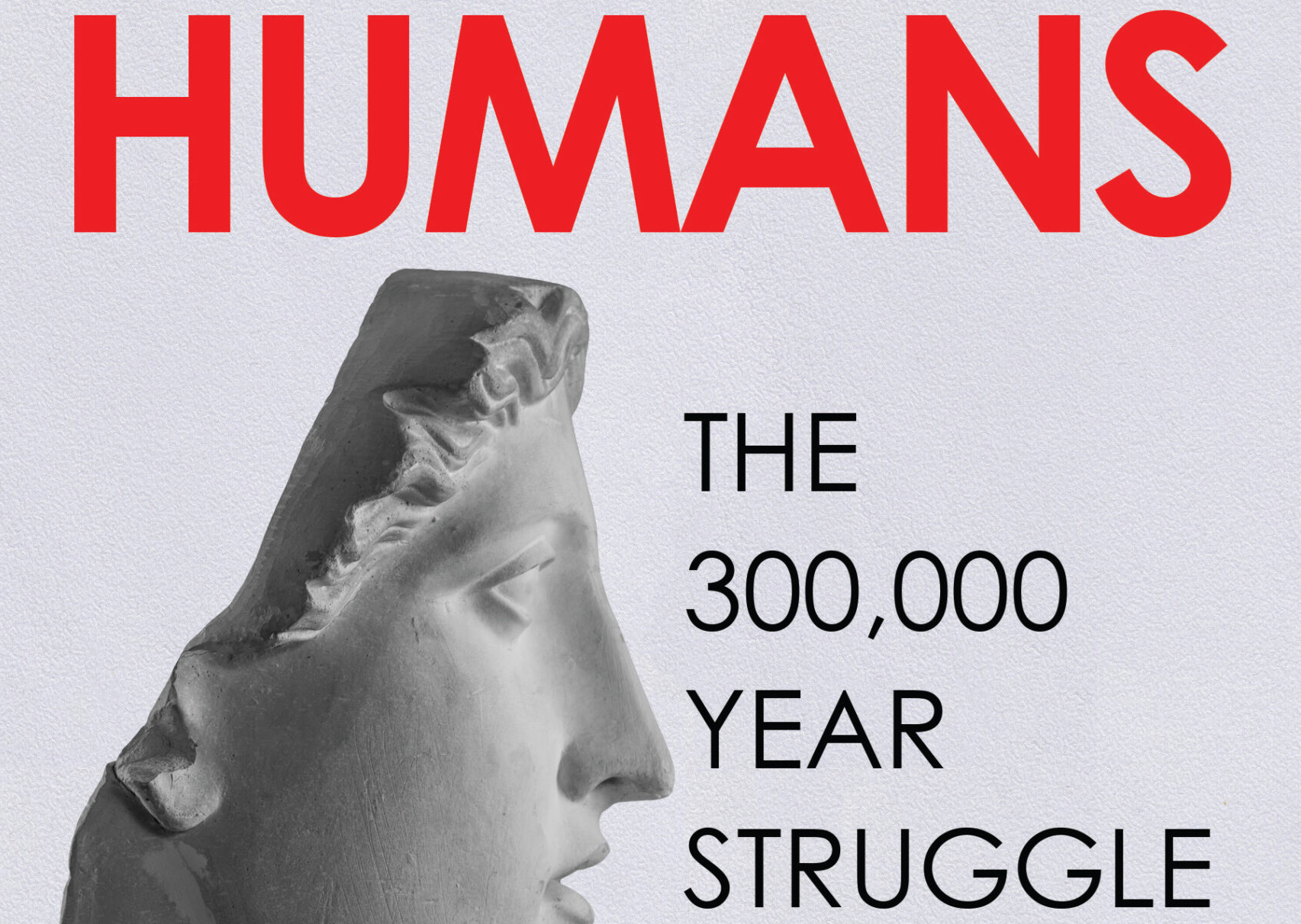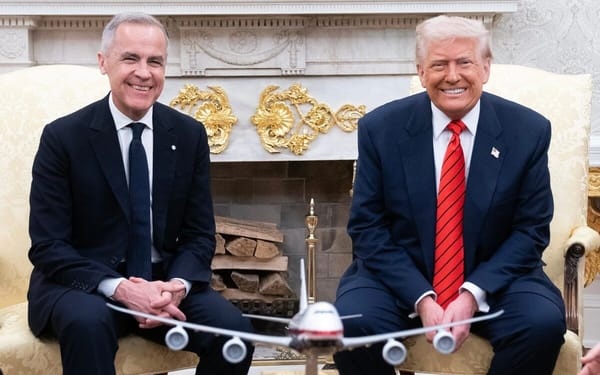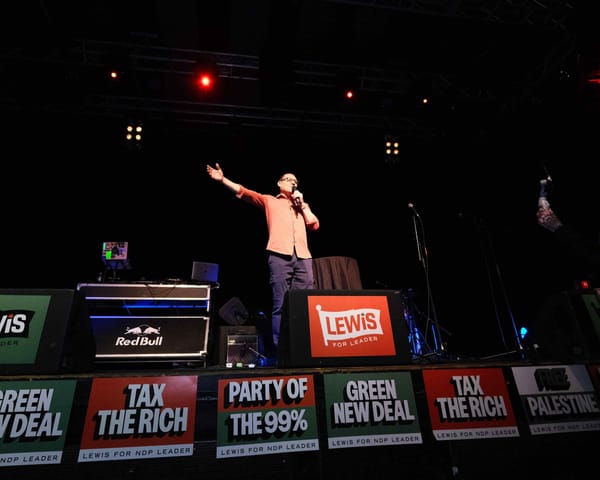
This week, I sat down with Alvin Finkel to discuss his new book, Humans: The 300,000-Year Struggle for Equality, published in September 2024 by Lorimer.
In the tradition of ‘people’s history,’ Humans tells the story of humanity as the 99 per cent’s long struggle for equality and democratic control over their lives and livelihoods. With truly breathtaking scope — from the first recorded human communities to our own moment of pandemic and ecological crises — Finkel finds a central thread: people have always resisted hierarchy and exploitation and have sought to build more egalitarian alternatives.
Finkel is an emeritus professor of history at Athabasca University and the past president of the Canadian Committee on Labour History. He is also a founding member of the Alberta Labour History Institute. In addition to Humans, he is the author of 13 other books, including Compassion: A Global History, Working People in Alberta: A History and History of the Canadian Peoples.
Adam King: First, congratulations on putting together such an impressive, interesting and unique book. Covering such an enormous amount of history couldn’t have been easy. Perhaps you can begin by telling readers what inspired you to write the book. Why tell the story of human history through the lens of a “struggle for equality”?
Alvin Finkel: I was inspired to write the book by what I regarded as the continuing dominance of old-style “Western civilization” and elitist history in both the global history textbooks used in universities and high schools as well as popular histories such as Yuval Harari’s Sapiens.
Over the last 50 years, many social histories with a national or subnational focus have zeroed in on class, gender and colonialism, and increasingly with an emphasis on the resistance of the masses as much as oppression. But the global histories that are taught in what may be the only history course that a student takes in high school or university barely incorporate that material.
AK: I’d like to also start with the book’s early chapters. This is material that will likely be least familiar to readers. You make a case that many pre-agricultural societies were less “warlike” and more “egalitarian and peaceful” than is generally assumed.
You write: “[O]ur foraging ancestors, including small groups who have maintained that lifestyle to the present day, lived in complex, scrupulously egalitarian, peaceful communities that often produced artistic and architectural masterpieces. Their ability to produce societies with internal equality, including gender equality, and their peaceful relations with their neighbours, have much to teach us today.”
Tell us about the role and meaning of equality in early human societies, how you argue they shaped human development, and what they teach us today?
AF: Both most foraging societies and early agricultural societies viewed equal relations among society members as essential for survival. Scarcity of food and other necessities made selfishness a threat to community survival. Studies of surviving egalitarian societies demonstrate that the cohesive role of egalitarianism also produced a great sense of social belonging that almost everyone valued.
Those are the societies that I open the book with: the Mbendjele Yaka Pygmies, for example. Sharing, rather than hogging, gave you status. That doesn’t mean there were no wannabe Donald Trumps or Elon Musks in these societies. But the overwhelming majority of community members had social values that would cause them to suppress such folks.
AK: As focused as the book is on equality and the struggle for it, democracy also plays a central role. At one point you write, “The evidence of both archaeology and oral history makes it clear that democracy existed almost from the beginning of human societies and indeed likely within prehuman hominid communities. So it began in Africa and travelled with the diaspora from Africa to every other continent.”
What do you argue is the connection between equality and democracy, and how have struggles for the two influenced one another through some of the history you cover?
AF: Democracy, the sharing of decision-making, reinforced equality in the distribution of production. It was the sense that a community was created by everyone having equal input into key decisions. That created the solidarity that led to scrupulous sharing of the products of hunting, gathering and fishing.
Over time, as a form of democracy has been produced in societies of great economic inequality, that sense of sharing both in terms of decision-making and wealth has been eroded. Economic inequality is assumed and voters are expected to reinforce it by surrendering decision-making power to fractions of the capitalist class whose competing interests and visions for maintaining class-based societies shape the political parties.
AK: As the book progresses, the societies on which you focus become both more complex and often more violent. Yet, as you show, popular revolts frequently put a brake on elites’ consolidation of power and exploitation. “[O]ne cannot understand why elites changed their strategies for expanding or maintaining their prestige and wealth without knowing about the challenges they faced,” as you nicely summarized it.
Maybe you could elaborate on this point. What role does popular resistance play in the narrative of your book, and how do you see it playing a similar role today?
AF: Elites ruthlessly try to expand their share of collective wealth and monopoly on decision-making. Popular resistance represents efforts of non-elites to restore the political and economic equality of early societies. Elites have often been forced to accommodate rebels in order to maintain their own wealth and power. For example, the Athenian experiment with democracy was forced on the elite. Athens was a three-class society where a small landowner elite had cornered most wealth, while the masses were divided between Athenian descended paupers and non-Athenians captured in wars and turned into slaves. There were constant slave revolts and occasional revolts of non-elite Athenians. When the elite believed that they lacked the arms to defeat both groups should they ever revolt simultaneously, they sought concessions to free Athenians. An assembly with limited political powers and no right to challenge the distribution of land became a divide and conquer mechanism.
Slave revolts could also result in concessions to slaves. The Roman slaves led by Spartacus were bloodily defeated. But Roman slave owners then feared their slaves and provided gradual manumission to most slaves, though often replacing slavery with feudal forms of subordination. Similarly, during the Western European feudal period from the 11th to 15th centuries, constant peasant revolts against landlordism gradually led to the replacement of feudal relations with capitalist land rents.
Revolts against European imperialism by the Mapuche in Chile and northern Argentina, the Mayans in Mexico, and an alliance of Indigenous peoples in the Ohio Valley and Great Lakes, led to important land concessions by imperial powers. Though successful settler efforts to reconquer those lands later occurred, that should not obscure the successes of oppressed peoples at various times.
Popular resistance today plays a similar role. In Bolivia, the efforts of the European-origin elites and the Americans to overthrow the Movimiento al Socialismo (MAS) government in 2019 faced sufficient opposition that MAS soon returned to power. In the Indian state of Kerala, popular movements produced a communist-led Left Front that has implemented amazing social legislation and some workers’ control.
AK: Humans does a wonderful job recounting the rise of Euro-American imperialism and the development of global capitalism. As Bryan Palmer’s new two-part book series similarly frames it, there developed two interrelated systems: capitalism and colonialism. In response, two resistance movements, the labour movement and movements of Indigenous and other colonized peoples, took shape as the primary forces of opposition.
How do you see these movements relating to one another over time?
AF: They have sometimes been in opposition to one another and sometimes united. They are most powerful when they unite against a common enemy.
That’s been easiest in Bolivia, South Africa and Kerala, where the labour force for the capitalists under colonialism has largely been the conquered Indigenous peoples. In countries where settlers have overwhelmed Indigenous people, the labour movement has often been dismissive of Indigenous concerns. The Australian labour movement in its formative years extolled the “white Australia” trope while the Canadian and American movements were indifferent to the fate of Indigenous peoples.
While settler workers’ movements and Indigenous movements have somewhat different aims, they share a sense of being locked out from both decision-making and the fruits of production under capitalism. Anti-racist movements within the labour movement have created an opening for Indigenous people in the workforce to work together with non-Indigenous workers to fight for broad social justice objectives, including Indigenous sovereignties.
AK: Many of the inspiring stories of resistance you tell in the book, including efforts by the workers’ movement to tame capitalism through unions and the welfare state, depended on elites fearing organized people power. I wonder how you would assess the prospects for similar reforms today, in light of the histories you weave together in the book. Where are we in the story Humans tells?
AF: We are at a danger point because workers today often have little sense of how hard their forebears struggled to win advances that increasingly are disappearing: the weekend, occupational health and safety, pensions, wages targeted to inflation. The Alberta Labour History Institute, of which I am the current president, has as its mission to record labour struggles in the words of participants so that the current generation of workers can counter the anti-trade union stance of the corporate elite.
What’s especially troubling is that the trade union movement since the Cold War has largely shed sections of the movement that want to go beyond incremental reforms to embrace notions of worker ownership and control of workplaces and a return to the notions of economic equality married to democracy at every level of life that characterized human societies in many areas of the planet until relatively recently.
Neoliberalism has put us on the defensive, and most of the time we are so busy fighting to hang onto the reforms won throughout the 20th century that capitalists and the politicians they control want eviscerated, that we are not focused on the need for democracy and equality.
AK: On the final page of the book, you write: “[T]oday’s world must incorporate the best of what can be learned from the world of past compassionate and sustainable societies. That message is that successful societies are not those that measure their worth in terms of economic growth but those that judge themselves in terms of how equally their residents participate in societal decision-making and in sharing the fruits of what the society produces.”
Let’s close with what you hope Humans can provide to movements struggling for such a reorientation of society today. What lessons can we glean from the long struggle for equality that your book tells?
AF: I hope Humans can play a role in reinforcing bottom-up movements for cooperation, for democratic alternatives to corporate capitalism, for an end to racism and genocides, and for a truly egalitarian, democratic socialism.
I think that recovering the values of the societies that dominated among humans for 98 per cent of our existence as a species is a good place to start. And then looking within later societies at the folks who fought, sometimes quite successfully, to replace autocracy with egalitarian, democratic societies, can help us understand that our genetic predisposition to kindness, sharing, and socialism has not evaporated.
People’s movements throughout human history have taken different forms that reflect what people think is possible in their time and place. Humans examines a large number of such past movements that subordinate groups of all kinds can draw upon in our time.
Recent Class Struggle Issues
- June 9 | Workers’ Rights Are Collapsing Globally. Canada Is No Exception
- June 2 | Israeli Products Should Have No Place In Canada
- May 26 | Can CUPW Prevent The Erosion Of Full-Time Work At Canada Post?
- May 19 | Reviewing The State Of The Labour Market – April 2025







